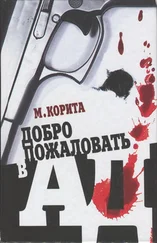Just call them. Let them figure it out.
The man had been murdered, and Abby knew who’d killed him. In that case, you called the police. Period.
When she stood up and reached for her phone, she realized it was gone, and only then did she remember the kid taking it and tossing it onto the kitchen counter after he’d looked at the photograph of Luke on the home screen.
He’d known Luke was dead. He’d known what had happened. So this scenario, this scene he’d built with Hank, was maybe a little bit better than Abby wanted to imagine.
I can tell the police the truth. They’ll need time to verify it, but they’ll believe it.
Hank’s dead eyes stared through the shattered windshield. California isn’t the only problem, those eyes seemed to say.
True. Police would learn quickly that Abby had also been arrested in Maine, and for stealing a car from Hank Bauer, no less. Never mind that Hank hadn’t pressed charges; whatever police records still existed from that, either on paper or in memory, would show yet another night very similar to this one — Hank Bauer had a fast car, Abby Kaplan had a thirst for speed, and it had ended badly.
It’s easier to believe than the truth, she realized. Either Abby Kaplan fucked up for the third time behind the wheel or a hit man disguised as a Boy Scout killed an insurance investigator in rural Maine. Which would you pick?
She needed evidence. At least one shot had connected with the car, and it went through the driver’s window. That would prove she wasn’t crazy, maybe even indicate the caliber of the bullet and the distance of the shot.
She walked around the front of the car, stepping over a torn tree with white-pulped flesh protruding from shredded bark like an open fracture.
The driver’s window was gone. Not just cracked with a clean hole through the center, but completely shattered. The sunroof was also demolished. So was the passenger window. Wherever the bullet might have left its mark, the kid had seen it and taken care of it.
That doesn’t matter. It’s a weak-ass attempt to cover things up, but it won’t stick, and the faster you get the police out here, the faster you’ll be done.
But she could imagine the cops’ faces as she told them about the kid with the gun and the bottle of Gentleman Jack. What would they look like when she got to the part about how she’d started the Chrysler with the remote and Hank had fallen on the gun, still tied to the chair, and from there it was all question marks and darkness...
That was the truth, yes. And the truth should always be enough, yes.
But she wasn’t so sure that it would be.
What does the house look like? she wondered. If it looks like the place I left, then my story is fine. If he took the time to clean it up, though...
She looked back at Hank. There was no need to rush for him. They didn’t use sirens and flashers when they were taking you to the morgue.
Abby closed the door on her friend’s corpse and walked up the road. She followed the rain-filled ruts left by her own tires until Hank’s house came into view, and then she stopped and stared.
The kitchen blinds were open again. The way they always were, or always had been until last night.
Bad sign. If he took that much time to set things right...
She crossed the yard like an inmate walking to her execution. Went to the window and looked in at the kitchen.
The chairs were tucked under the table, which was bare except for a newspaper, open to the sports section. No whiskey, no tumbler glasses, no lantern. The generator was gone, and so was the space heater. The block of knives was back on the counter.
You’ll have to tell them that this sociopath did all this while you were passed out in the woods. You will have to convince them of that, and you don’t even know anything about him.
No, that wasn’t true. Looking in at the kitchen, all traces of chaos eradicated from it, Abby felt like she knew plenty about that kid.
And all of it was terrifying.
Could she describe him? Not in much more than general terms. And the kid did not fit the story, because the story seemed to be a professional killing, and baby-faced teenagers did not carry out professional hits.
I’ll need to be able to tell them who he is, but I don’t know who he is. All I know is that he’s fucking scary, and he wanted the phone.
He’d wanted it, yes. But did he have it? The bags of phones Abby had carried in were gone, but what about the one she’d jammed under the driver’s seat? Had the kid searched the car?
Abby left the house and started back down the road, moving at a jog this time, but it was a long distance and she was hurting, so she quickly fell back to a labored walk. She opened the driver’s door, avoided staring at Hank’s face, and reached below the seat.
The bag was there. Three iPhones inside.
She took it out and stepped away from the car and looked up at the lightening sky — the day was moving along, and she needed to do the same. One way or the other, she had to make a decision.
It was a memory that sealed the choice. When she’d been sitting at that table trying to reason her way out of the situation, she’d told the kid that he would end up in jail. The response had been immediate, and chilling: You’d be surprised how many friends I’ve got around jails. Some in cells, some in uniforms.
Abby didn’t think he’d been lying.
She looked at the dead man who’d backed her time and again throughout her life. “I’m sorry, Hank,” she said. She wanted to remember some other version of Hank’s face, not this death pallor and endless stare, not the broken-stem look of his neck. All she could see was that, though — that and the image of Hank’s face, sweaty and scared in the lantern light, as he screamed at Abby to run.
Backing her one last time.
“Thank you,” Abby told the dead man, and then she closed the door. She walked back up the lonely road to Hank’s house and up the steps. The screen was damaged from where she’d blasted through it — the only physical evidence that supported her story. The knob turned freely. Once inside, she didn’t waste much time looking for things the kid might’ve missed in his cleanup effort. She had a feeling there wouldn’t be any, and she needed to move quickly.
Hank’s guns were stored in a glass-doored cabinet in the living room, impossible to miss. Some people were proud of guns and wanted them as conversation pieces. The cabinet had a lock, which was better than nothing, but a lock didn’t mean much when it secured thin glass doors. Abby wrapped her fist in a blanket that was draped over the back of the couch and then punched each door once, without much force. The glass shattered and she swept it away with the blanket. She took one shotgun, a black Remington over/under; one rifle, a scoped.308; and both handguns, a Glock .45 and a SIG Sauer nine-millimeter. The ammunition was stored on a shelf below the guns. She took all of it, boxes and boxes of shells and bullets, and wrapped them in the blanket with the guns.
She stepped back and looked at what she’d done and tried to find the voice in her head that would say this was a mistake. Before it could so much as whisper, though, she glanced into the kitchen and saw the tidy arrangement of chairs and tables, no trace of violence.
Friends in cells and friends in uniforms, the kid had said.
Abby picked up the blanket with the guns and the ammunition and walked out of the living room. She crossed to the kitchen counter and picked up her phone. It had a charge and a signal, but she put it in her pocket without pause. She’d make the call to police, but not from here.
Читать дальше






![Майкл Корита - Те, кто желает мне смерти [litres]](/books/396555/majkl-korita-te-kto-zhelaet-mne-smerti-litres-thumb.webp)





